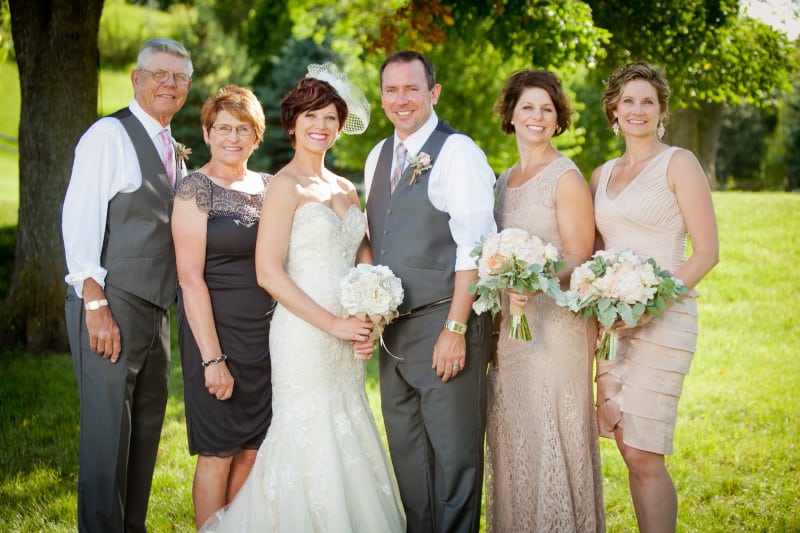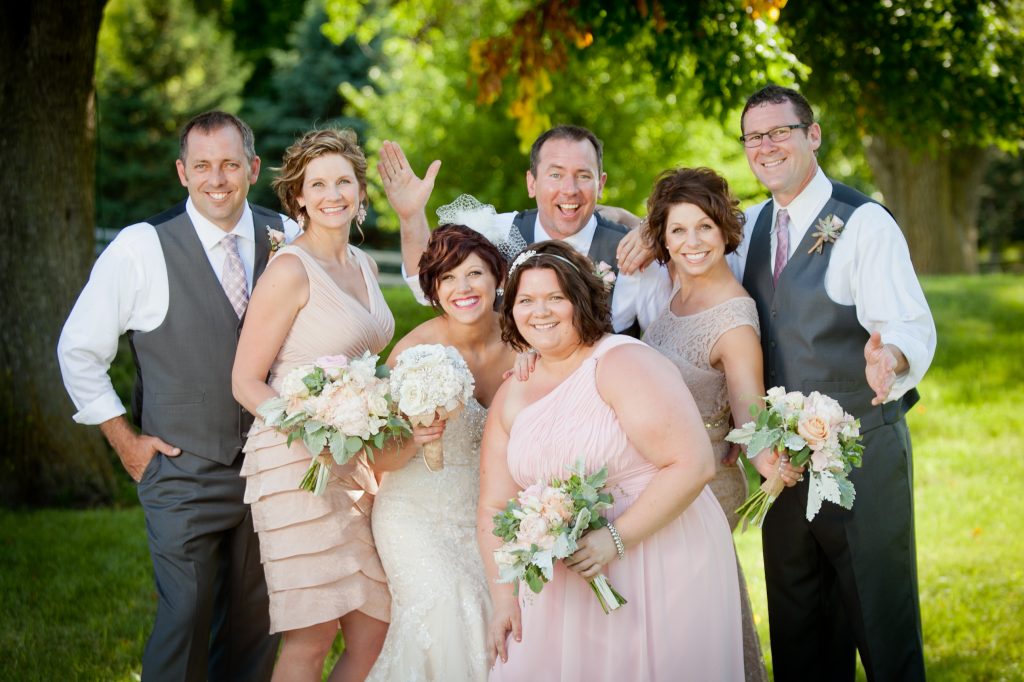When does tradition trump your personal preference? Does it ever? Are you wondering which rules you can break? We created a list of eight “safe to skip” rules and traditions that no longer apply to modern midwestern weddings.
- The bride’s parents pay for the wedding. And we mean All. Of. It.
Old-school rules stated that the bride’s family paid for the wedding and reception, while the groom’s family paid for the rehearsal dinner. Everyone knows the costs of the wedding outnumber the cost of the rehearsal 10:1, so why not make it a bit more even?
Keep in mind that flexibility and good communication are the keys to a successful wedding budget. Modern wedding etiquette is more flexible, but it’s often based on traditional rules.
Read more in our previous post about “who pays for what” traditions.
- Your mom can’t throw your shower.
Years ago, it was considered rude for the mother to host a party where the sole purpose was for her daughter to receive gifts. This tradition has faded in modern years. If your mother and sisters want to host your shower, so be it! Your mother and aunts? Yes!
Read more about shower gifts and creative theme ideas for showers in our previous post.
- The guests of the groom sit on one side of the church, while the bride’s are on the other.
This is an old-school tradition that Pinterest has effectively eliminated with the adorable chalkboard signage placed by the seating for the ceremony. We could create a custom sign for you to match your wedding stationery and style.
Possible sayings include:
- “Choose a seat, not a side. We’re all family once the knot is tied!”
- “Come as you are, stay as long as you can, we’re all family here, so no seating plan!”
- “Friends of the bride, friends of the groom, please sit together – there is plenty of room.”
- “She said yes! Now they say I do! Please pick any seat. We’re now one family, not two!”

- The number of bridesmaids must equal the number of groomsmen.
The members of the bridal party should be the people who you’re closest with. If that means two bridesmaids and three groomsmen, then so be it. It could also mean seven bridesmaids and seven groomsmen. Do what you want!
- It has to be on a Saturday afternoon, with the reception in the evening.
Weddings used to take place in the early afternoon on a Saturday, followed by photographs for the family and wedding party. Guests passed the time by waiting around town before heading to the reception dance and dinner. This tried and true schedule was rarely altered.
There were no cocktail hours or yard games to pass the time, no make-your-own sundae bars, and no Friday or mid-week weddings. Now, that has all changed. Today, weddings can take place on any day at any time. And more frequently, photos are taken before the ceremony. You are free to explore a flexible wedding schedule. Booking a venue for a Friday or even mid-week can often yield significant savings. And we think it’s adorable when a couple has a brunch wedding and gets in their “getaway” car early evening to start their honeymoon! What about an evening wedding at dusk with the dinner BEFORE the actual ceremony? Beautiful.
Read our previous post about customized stationary for all wedding weekend events.
- You must have wedding favors.
Some brides are asking, “Why bother with expensive favors? Everyone leaves them or forgets them anyway!” Here are three ideas that you can use in place of a traditional wedding favor:
- A photo booth: They take home a strip of fun photos!
- A donation to the charity of their choice: They write their choice on a slip of paper (or check a box of your and groom’s preference) and you make the donation.
- Place the favors together on a pretty table with some photographs: You’ll only need about half as many, because most people won’t bother to get one or won’t want one.

- You cannot see the bride/groom before walking down the aisle (because it’s back luck!).
Can you say adorable first-look photos? The idea of a special “first look” moment has convinced dozens of couples to ignore this tradition. The benefit of seeing your bride/groom before walking down the aisle is that nearly all of your photos can be complete before the ceremony. This takes pressure off of you, the guests and the wedding party.
- The bride must wear a veil.
While this may be an important tradition in some religions, it’s certainly not a requirement for the wedding day ensemble. Feel free to skip the veil or wear a blusher. No one will scoff at your stylish change-up!

We believe that wedding etiquette evolves! Go ahead, make these changes. We are confident that your midwestern wedding can move into the future with class and style.

